From top to bottom: Santiago, Chile, October 25, 2019; Baghdad, Iraq, October 25, 2019; Beirut, Lebanon, October 24, 2019; Algiers, Algeria on October 29, 2019.
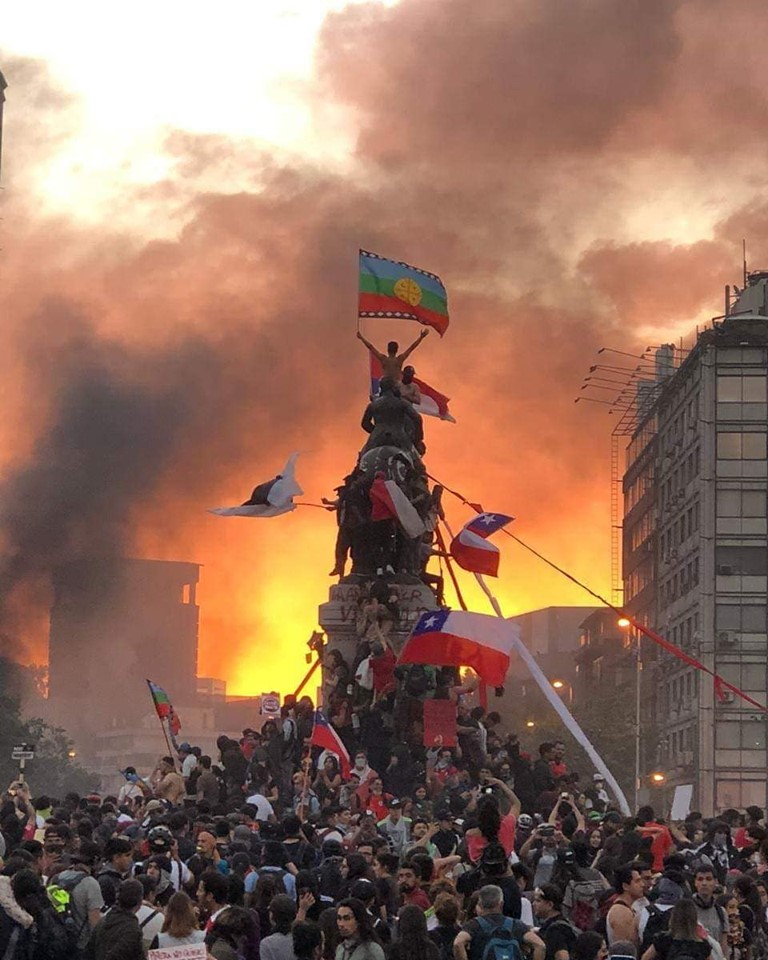
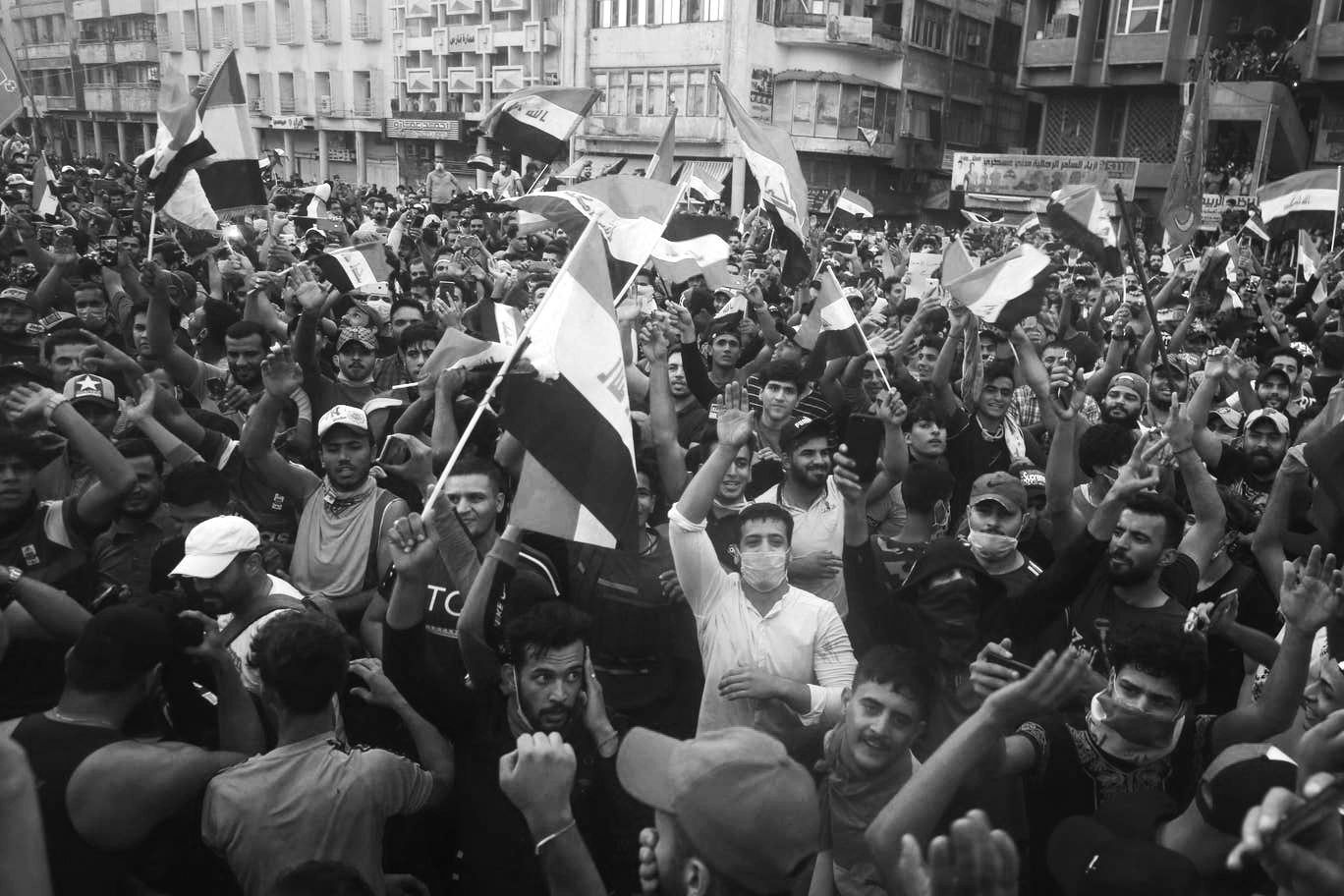

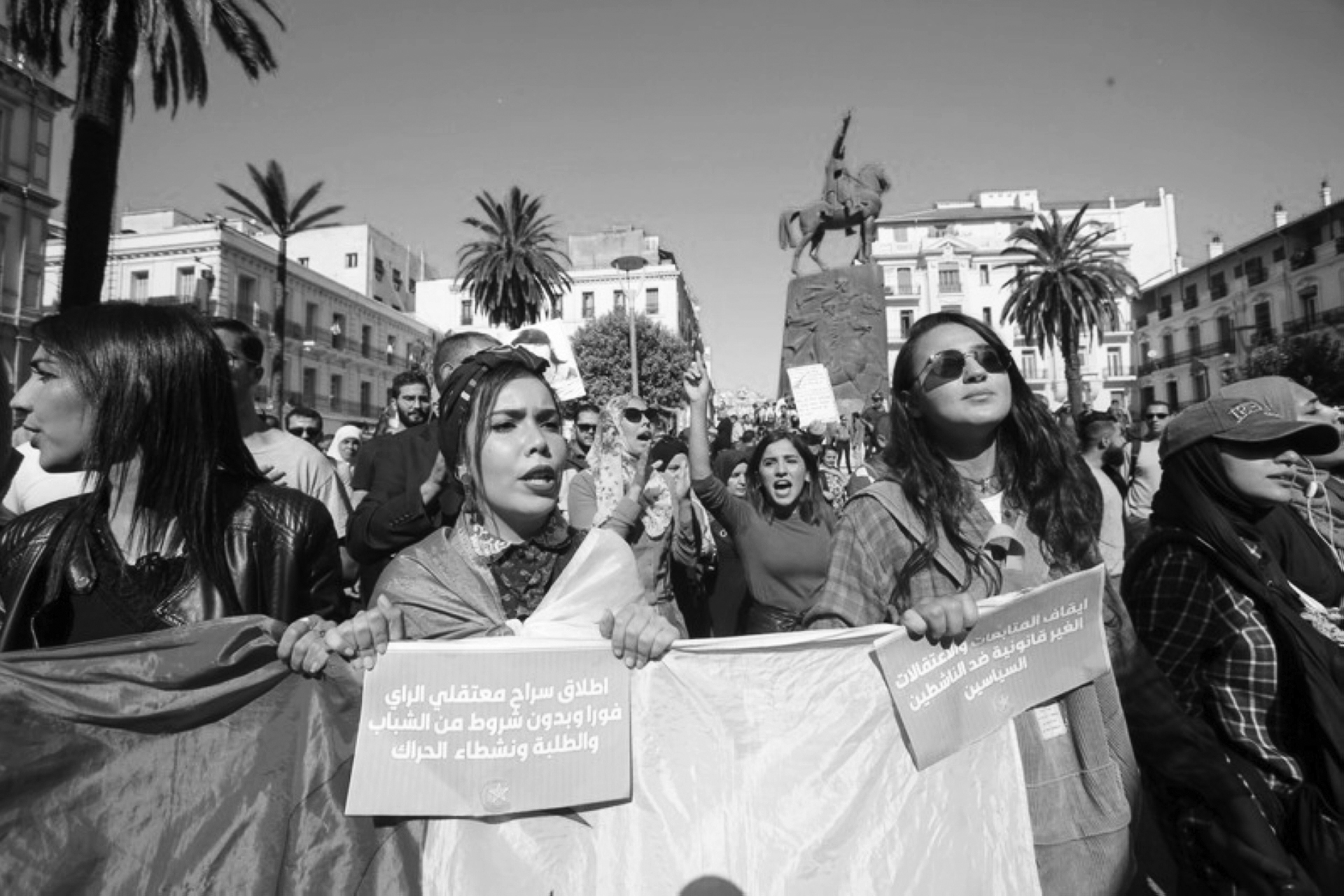

Workers and oppressed peoples of the world unite!
From top to bottom: Santiago, Chile, October 25, 2019; Baghdad, Iraq, October 25, 2019; Beirut, Lebanon, October 24, 2019; Algiers, Algeria on October 29, 2019.




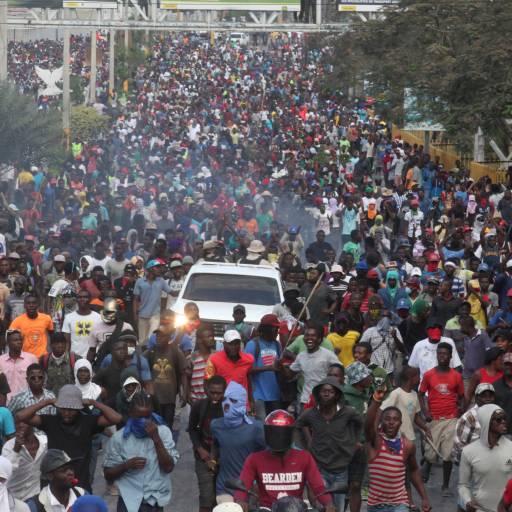
On Oct 13, thousands of Haitians marched into Port-au-Prince demanding the resignation of U.S.-backed right-wing President Jovenel Moïse. The terms of a 2018 IMF loan that stipulated reduced oil subsidies has led to massive fuel shortages and higher fuel prices. Moïse has also been accused of stealing money from Venezuela’s fuel assistance program, PetroCaribe. But the protests are about more than just fuel shortages. Centuries of colonial violence and imperialist repression—including nearly two decades of U.S. military occupation and multiple U.S. sponsored coups—have made the Republic of Haiti the poorest nation in the Western Hemisphere.
The protests include workers, peasants, students and teachers—all yearning for a life of dignity, for access to education, housing, food, and healthcare but also for national independence, free from the clutches of U.S., French, and Canadian imperialists. As the first Black nation to have achieved liberation from colonial control, the people of Haiti bear a history not only of extreme oppression, but also revolutionary struggle.
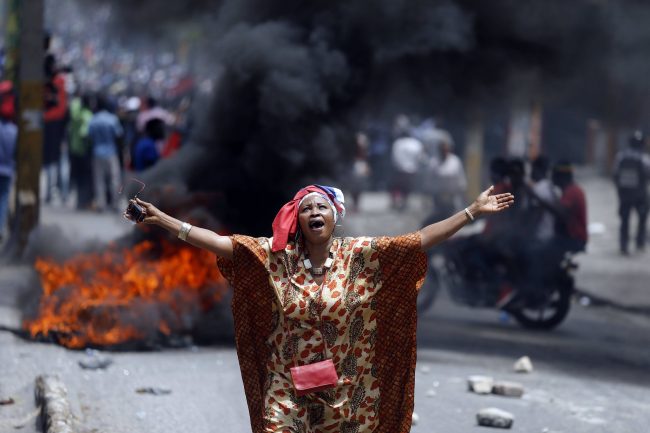
In Ecuador, similar mass protests have forced the government to concede to some of the people’s demands. After President Lenin Moreno announced that he would eliminate oil subsidies per the terms of an IMF loan, hundreds of transit workers went on strike. Thousands of other people from diverse sectors of society—women’s groups, Indigenous peoples, trade unions, social organizations, and Marxist groups—took to the streets to protest not just the latest IMF deal, but all of Moreno’s reactionary policies. Indigenous peoples lead this movement. Moreno deployed riot police and the army to repress the protesters.
The U.S. government supports the Moreno government, which is unsurprising, given its record of backing reactionary rulers in other countries to maintain its own political and economic supremacy.
Moreno has increased poverty and inequality by slashing funding for energy, public infrastructure, healthcare, and education. The IMF loan also mandated 20% cuts to public employees’ salaries, the elimination of workplace safety regulations, privatization of pensions, cuts to wages, and layoffs of up to 140,000 public employees. But the people of Ecuador are rising up against this program of austerity. After weeks of militant protests, Moreno announced that he would restore fuel subsidies.
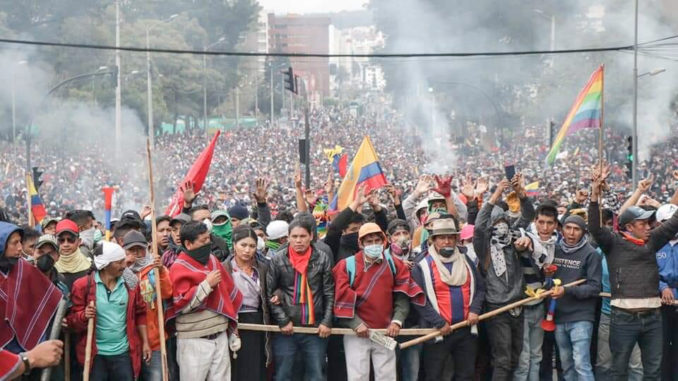
The mass movement in Ecuador continues, just as in Haiti. Both nations are ruled by reactionary presidents with ties to the imperialist U.S. government, which has only one mission: to make the poor poorer and the rich richer. As workers, we have an invaluable lesson to learn from the people of Haiti and Ecuador, who show us the power that lies in working class unity. We must come together and build our own militant workers movement from the ground up. Our oppressors will never hand us our own liberation; we must seize it for ourselves.
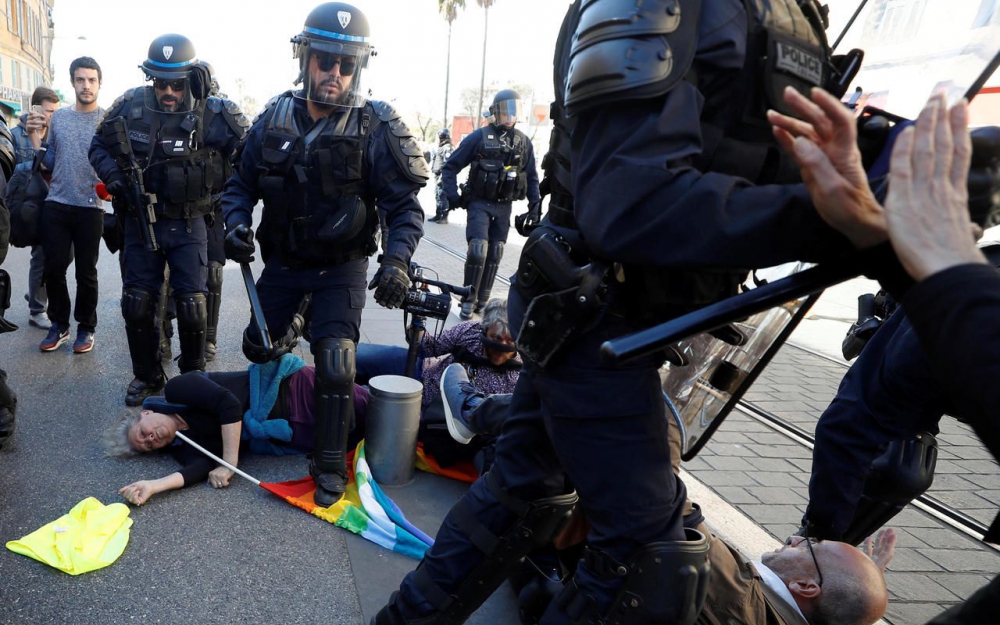
The Yellow Vests, a group of French workers from all walks of life, have been taking to the streets every Saturday for months. These actions have taken place in cities, towns, and villages across France. They are protesting all the capitalist austerity measures that profit the rich and have disastrous consequences for the poor.
The police have used flash grenades, water cannons, riot guns, tear gas, and billy clubs to brutally repress protesters. More than 144 protestors and journalists have been severely injured by riot police. The name of Geneviève Legay, a 73 year old activist whose skull was fractured by riot police on March 23, has now become a rallying cry against the brutality of French President Emmanuel Macron who put out a statement bad-mouthing Legay for her “irresponsibility” and for being in a “prohibited area.” Some protestors have responded to this repression by destroying the private property of the super-rich or by torching cop cars.
Macron has declared that he would call upon the French army to prevent further protests. It is no surprise that Macron favors the protection of private property rights over human rights: he has spent most of his career working for ultra-rich bankers. Presidents like Macron ignore the fact that 80% of French people support the yellow vests, that 10,000 people die from unemployment every year. Rich capitalists like him see working-class people as expendable in the face of profit.